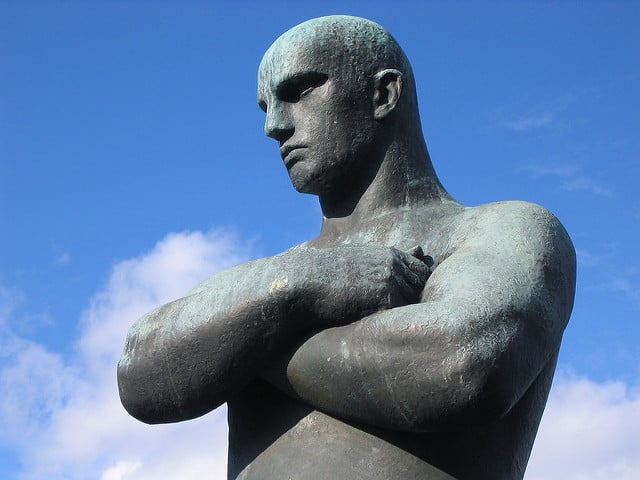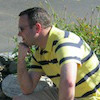Sitting anywhere lately for any amount of time has become bothersome. Variously these days I am hunched over my keyboard typing out theological missives, or cradled in the plush armchair of my room reading from the required course listing. No matter where I am, though, I find I am only able to remain in these positions for a short period of time. Pain shoots across my upper back, from shoulder blade to shoulder blade, a dull ache follows, and I gingerly move about, trying to shake the general creakiness I feel in my bones. This is a pattern that I first noticed in the fall, and presumed it was connected to my recent return to studies and of an older student’s poor posture.
But the pain remains, for months now, and so I have been seeing a chiropractor. It’s not constant, but it’s regular enough that I have to go every now and then for an adjustment. I like my chiropractor. She’s a triathlete with more medals on her walls than are stored in my parents garage. She’s a manipulator – but in a good way – turning me, pushing me, stretching me, trying to put everything back where it belongs, where every vertebrae should be.
In our first appointment, she asked lots of questions about how I hurt myself. Ostensibly, it was from working out: poor form on the rowing machine here in the community’s simple gym. But she seemed confident that mine was an older injury, aggravated again now.
So as she pushed and pulled my body, she also pressed me for answers: when else might it be from?
***
Almost 2 years ago, I accompanied a group of college students on an immersion trip to El Salvador. It’s a type of trip I’d done a handful of times before. Still, I wasn’t prepared for this one.
I wasn’t prepared for the way the shroud of death hangs over this country. While in El Salvador we heard from witnesses to the murders of Jesuits, Bishop Romero, the four American churchwomen, and countless other unnamed martyrs. We spent a day in El Mozote, where an entire village was wiped out – men, women, children – in the course of a few days. The silence of the place – and of the normally loud students – was eerie.
We didn’t know how to handle all of this. Surrounded by death for days at a time, the students fled from it, rather than engaging it: they played games and listened to music in the van, and were constantly on their phones, viewing old photos and videos – happier times. A digital defense mechanism. Their inability to just be in the pain and confusion of these experiences baffled me. I wanted them to ignore all of their instincts, instincts which were so annoyingly American.
So, I was pleased when we split off from one another for a guided homestay, a night in the simple barrio homes of local women associated with an NGO. My host, Noemi, offered me a bed in the corner of her unfinished home – just a room, actually. The floor was dirt, the bed was firm, and the lights went promptly off when the credits of the day’s telenovela episode finished. I pulled the mosquito netting over me, crossed my arms over my chest, and stared at the tin roof-ceiling.
And I fell asleep that way: arms crossed. All night. The next morning, I stumbled out of the firm bed, a searing pain shooting across my back and down my legs. I stretched throughout the day and eventually loosened up, but it took a while. And as we sat in the van, traveling to our next destination, I wondered: how did I sleep like that all night, with my arms crossed? And why?
The answer seems so obvious now. While the students stubbornly clung to their phones to ward off the unfamiliar, I had adopted my own defensive posture: arms crossed over my chest as if to protect myself, a silent, sleepy protest against the unknown and the foreign.
***
Rather than keeping some malicious force away, I ended up hurting myself. My chiropractor is now trying to correct the fruit of my defensive posture and I’ve got a medal waiting for her if she can. Because this is a Herculean task: she’s trying to put everything back where it belongs, back before suspicion and fear pulled my arms tight across my heart, in a vain attempt to keep me whole and safe.
I wish I had taken my own advice to the students: ignore your instincts, forget what you know. Because my annoyingly American instincts – for self-preservation, to avoid vulnerability, to remain suspicious – left me hunched, wounded and frail in a way I could feel. It still hurts. My back is killing me. And my fear? I’ll need more than a good chiropractor for that.
–//–
The cover photo, from Flickr user Forest Runner can be found here.


